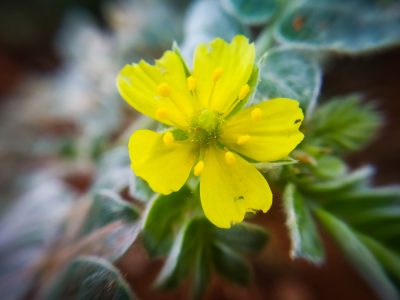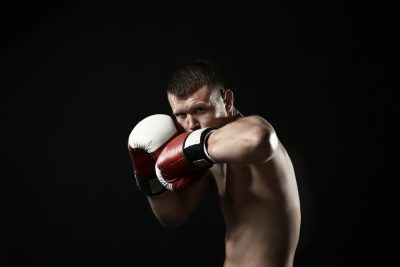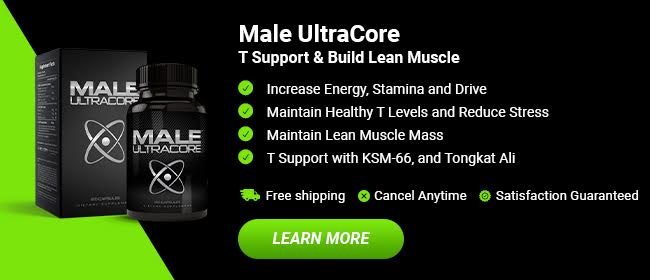Some weeks back, I stumbled upon a Facebook post from someone who was a reasonably prominent health and fitness personality saying something to the effect of testosterone booster supplements being scam products that don’t work.
No evidence. No added information. No sources.
Just another one-man statement cast into the cybernetic winds of the Internet that should be taken as gospel truth.
Now I usually let posts like that fly. But this person broke out the red background and massive typeface, not to mention caps – so HE MUST HAVE BEEN DEAD SERIOUS.
And you never break out the caps and big fonts on social media just for shits and giggles. That should be used only for important things.
Like maybe how you’ve found the answer to who shot Jimmy Hoffa.
Or how culturally aware you are because you scored a perfect ten on a quiz about TV shows no one cares about.
Or maybe something about how you like sushi.
Anyway, when this guy threw shade on testosterone boosters with his appalling use of ALL CAPS, everyone noticed – including his followers who appeared to agree with his viewpoint by dropping a like or a heart react.
Take note: these are the same people who believe you can take supplements to reduce stress, block estrogen, or promote x number of biochemical processes, but to use them to raise testosterone? It’s all hogwash. None of them work. They’re all a scam.
Source: “Just trust me, bro!”
But I get it.
I get the hate. I get why these doubting Thomases think the way they think.
They’re undoubtedly juxtaposing testosterone boosters with actual testosterone replacement therapy with all the needles, patches, and things.
I’ll be the first person to admit that no testosterone booster supplement will work as effectively as injecting testosterone straight into either one of your glutes.
But many of these supplements do help increase testosterone.
Ingredients like Ashwagandha and Tongkat Ali have been clinically proven to help provide a tangible testosterone boost. It’s not going to jack you up to high heavens. It’s not going to fix everything wrong with you in one go. But it will be enough support to get you where you need to be – or give you just that extra edge to get better at the gym, at work, or in the bedroom just slightly easier.
One of the forerunners of today’s testosterone booster supplements was Tribulus Terrestris, a plant that has been marketed under many names for years now. The plant has been the subject of new research, and it warrants a closer look as far as its T-boosting properties are concerned.
Why Is No One Talking About Tribulus?

Tribulus Terrestris is a small, leafy, fruit-producing Mediterranean plant known as a puncture vine or caltrop due to its spiny appearance. It grows worldwide, specifically in Asia, Africa, and parts of the Middle East, but the high-grade stuff is arguably from Bulgaria.
Tribulus has long been used under the traditional Chinese and Ayurvedic medical systems to boost libido, manage hormonal levels, and improve urinary function.
But I’ve never really shilled for it. I was concerned it would be in poor form. Or maybe I just felt awkward about it. Here’s the thing, though. Male UltraCore’s internal research showed that this natural androgenic effectively boosted testosterone concentrations and improved overall performance. However, the problem was that the published formal research showed it worked, while others showed it had little to no effect.
Whatever the case is, we’ve always thought that clinical studies were a little unimaginative because the researchers were most likely using Tribulus that wasn’t potent. They might have used plants grown in less-than-optimal conditions with nary a thought into how the plant was grown or how the plant was harvested, or how it wasn’t extracted at the highest possible active ingredient concentrations.
Recent research from Japan backs our theory up. Based on a study performed on strenuously trained male boxers to see the positive effects of Tribulus, they inferred that the biologically-active contents of the following compounds 25(R)-Spirostan-3,6,12-trione/25(R)-Spirostan-4-ene-3,12-dione and saponin A vary widely depending on the climate, the geographical region, and parts of the herb that are used, which may in part explain the differing results of Tribulus extracts across multiple different studies. (Ma, 2015)
Now, let’s see what happened in that study of boxers, along with another research that tested the herb’s effects on middle-aged males using standardized extracts of Tribulus.
The Research: Boxers and Middle-Aged Men

The research conducted on boxers was developed to see how Tribulus influenced muscle mass, damage, and performance, and if any of these factors might have been affected by changes in testosterone, IGF-1, or growth hormone (GH).
Here’s how they did it. The researchers split 15 individual boxers into two groups. According to the study, all athletes received the same amount of high intensity and high volume training separated by 4 weeks of rest.
The exercise + Tribulus group was given a 1250 mg standardized Tribulus extract. After the boxers in the Tribulus group finished the training program, they were shown to have improved their muscle power, less susceptible to wear and tear, apart from increased concentrations of IGF binding protein (IGFBP-3).
Another study saw Polish scientists testing 14 adult men between ages 45-60 – a demographic likely to experience declining testosterone production – for twelve weeks. The first six weeks saw the men in the experimental group being given 900 mg Tribulus delivered in separate doses. For the remaining six weeks, the men would then receive 1,800 mg in individual doses.
All men in the study, control group, and otherwise, were all subjected to a well-developed resistance training program. At the end of the study, the men who took Tribulus demonstrated the following:
- 12% testosterone increase
- 11% GH increase
- 20% IGF-1 increase
- 7% body fat reduction
- 4% LDL decrease
- 7% HDL increase
Making Sense Out of the Numbers
For the longest time, all of us thought that Tribulus works because of its protodioscin, a steroidal saponin. The latter prompts the pituitary to produce more luteinizing hormone (LH), which then signals the testes to produce more testosterone.
Now, this might be true or false. But no one can say that with certainty. Tribulus raises testosterone levels, which we know, but it may be more related to how it inhibits enzymes that convert testosterone to estrogen and DHT.
And it makes perfect sense because inhibiting conversion alone already ensures higher testosterone levels.
Others believe that Tribulus may increase the concentration of androgen receptors in the brain. As a result, testosterone has more places to stay in and work its wonders.
I must mention, though, that the testosterone increase may only happen in individuals who are clinically testosterone deficient, as demonstrated in the aforementioned study targeting middle-aged men.
At the same time, the young boxers noted in the first study didn’t show much in the way of improvements in testosterone levels after Tribulus supplementation. This may be due to reasons such as them having adequate testosterone levels. Either way, the young boxers in the study still exhibited some benefit, particularly when it comes to muscle strength and withstanding muscular damage.
These results have led to further hypothesizing that Tribulus may lead to increased IGF-1 activity by reducing IGFBP-3, which is the protein that binds to IGF. IGF-1, if you are unaware yet, stimulates the process of cellular growth in all cells in the body – muscle cells included.
That said, here are the facts: if you are dealing with low testosterone concentrations due to factors such as age, genetics, nutrition, environment, or psychology, a standardized Tribulus extract may help bring T levels into normal, healthy ranges.
However, no matter how much testosterone is in your bloodstream, it seems that Tribulus may also boost overall physical performance and reduce training-related muscle damage by stimulating IGF-1 activity, which may lead to increased muscle mass over time.
What About Sexual Performance?

Tribulus has been used throughout history as an aphrodisiac, and a handful of studies have confirmed its use in improving sexual performance. A study found that consuming a 750-1500 mg Tribulus supplement every day for two months resulted in a remarkable 79% increase in male sex drive; on the other hand, 67% of women who took a 500-1500 mg Tribulus supplement enjoyed a boost in libido (Neychev 2016).
Much of the credit should be given to Tribulus’ androgenic properties; however, there is an emerging trail of evidence from animal studies to state that there are mechanisms dependent on nitric oxide and endothelium that power Tribulus’ efficacy in this realm.
Erections are essentially a study in hydraulics. Once the endothelium found in blood vessels eases up and nitric oxide production increases, your erections will be better. Simple as. The same is true for women as far as nitric oxide is concerned. When blood flow to the clitoris increases, this leads to the clitoris being engorged with blood, leading to the extrusion of the glans clitoris. This, in effect, heightens clitoral sensitivity.
Don’t Buy “Schwag” (or Literal Grass Clippings)
So, just like most natural ingredients found in supplements, much of Tribulus’ effects boil down to the potency of the extract used, as well as its purity.
The finest Tribulus plants are cultivated in Bulgaria, and UltraCore Supplements uses only the latter’s most potent standardized extracts in all of the products that use it: mainly, Male UltraCore™, the New York-based company’s flagship testosterone booster product.
Bulgarians know their Tribulus – and they know exactly what parts of the plant to process for maximum saponin and valuable content.
At the same time, they understand that the highest concentration of saponins in Tribulus plants is found in the leaves and roots, and then the fruit and stems.
Don’t think for a second that UltraCore Supplements is just packing their supplements with dry herbs and literal grass clippings. No, it doesn’t work that way. UltraCore Supplements is committed to using only the highest-quality, and highest-purity standardized extracts that all but guarantee a positive result.
Each 2-capsule serving of UltraCore Supplements’ Male UltraCore™ features a high-performance Tribulus extract formulated at a 40:1 extraction ratio, meaning you’re getting as much as 40 times the protodioscin content than dried Tribulus plant matter that often ends up in your garden variety testosterone booster. Tribulus plays a key role in the product’s 1225 mg VI-PEX Proprietary Blend that features essentials such as L-Arginine, Tribulus Terrestris, Horny Goat Weed, and Tongkat Ali, among others.
Taking a testosterone booster that doesn’t use standardized extracts means you’re taking a virtually worthless product – it’s little more than a placebo made from schwag.
This uncompromising commitment to quality makes UltraCore Supplements continue to produce and use the fullest-spectrum Tribulus (apart from the rest of the ingredients that boost T) in the world today – bar none.
EXPERIENCE THE MALE ULTRACORE DIFFERENCE TODAY
References:
Yiming Ma, et al. “Tribulus Terrestris extracts alleviate muscle damage and promote the anaerobic performance of trained male boxers and its mechanisms: Roles of androgen, IGF-1, and IGF binding protein-3,” Journal of Sport and Health Science, Volume 6, Issue 4, December 2017.
Ricardo Munarriz, et al. “Biology of Female Sexual Function,” Boston University School of Medicine, Sexual Medicine.
Vladimir Neychev, Vanyo Mitev, “Pro-sexual and Androgen Enhancing Effects of Tribulus Terrestris L.: Fact or Fiction,” J Ethnopharmacol. 2016 Feb 17;179:345-55.
Ivanka Semerdjieva, Valtcho Zheljazkov, “Chemical Constituents, Biological Properties, and Uses of Tribulus Terrestris: A Review,” Natural Product Communications, August 2019: 1-26.
Michal Wilk, et al. “Endocrine Responses to Physical Training and Tribulus Terrestris Supplementation in Middle-Age Men,” Central European Journal of Sports Sciences and Medicine, Vol. 13, No. 1/2016: 65-71.




